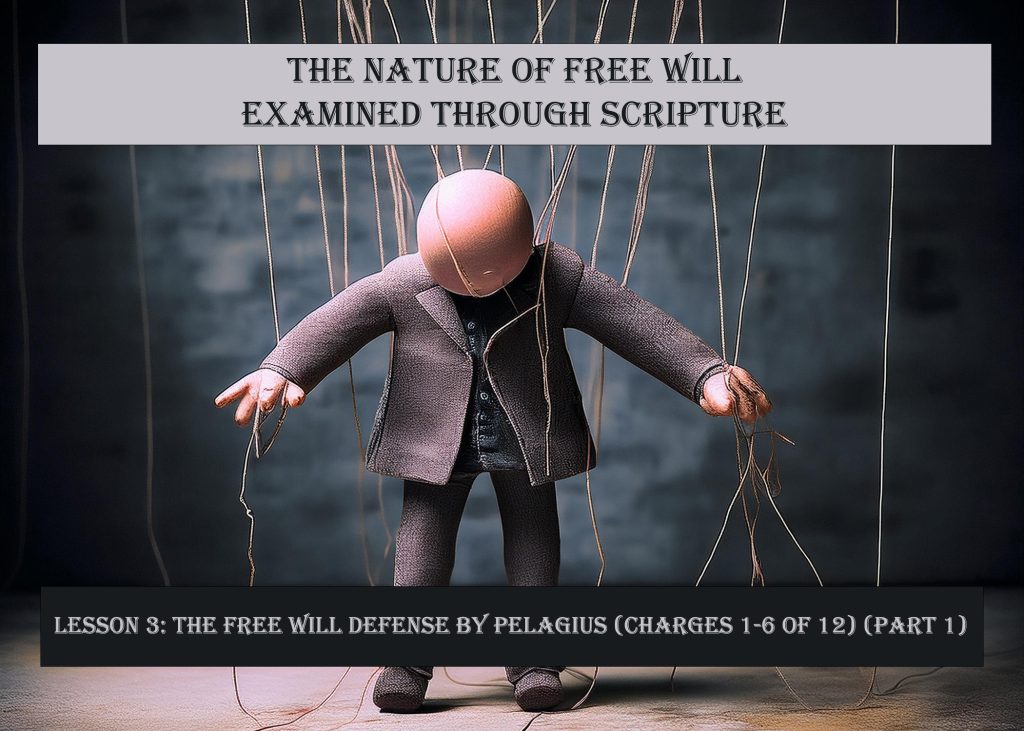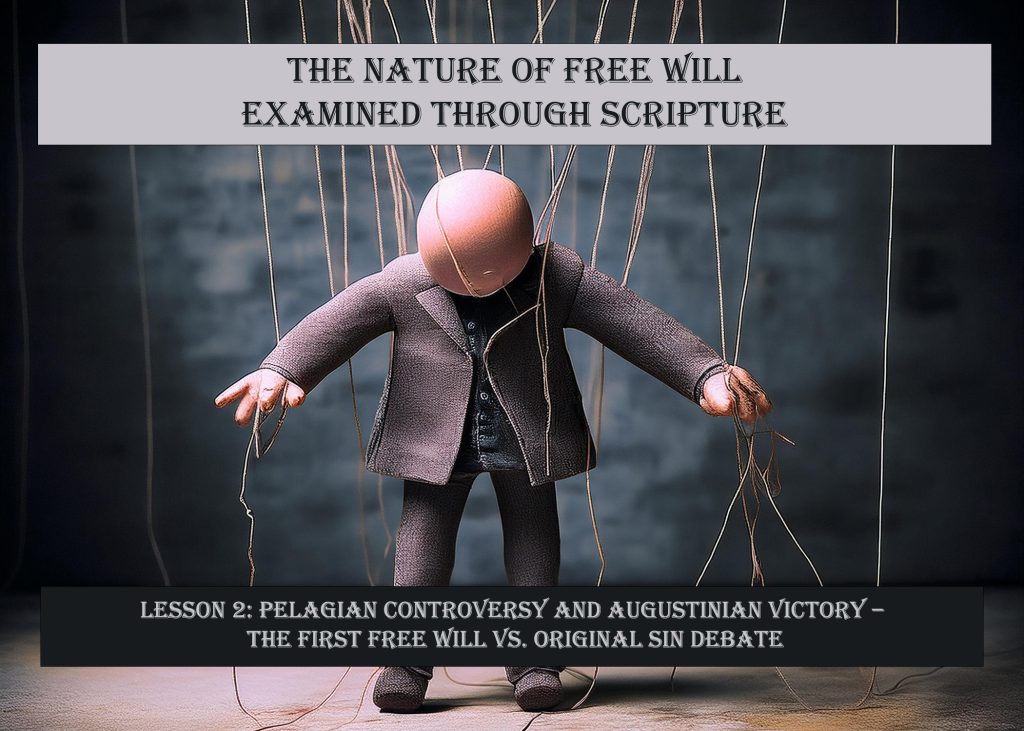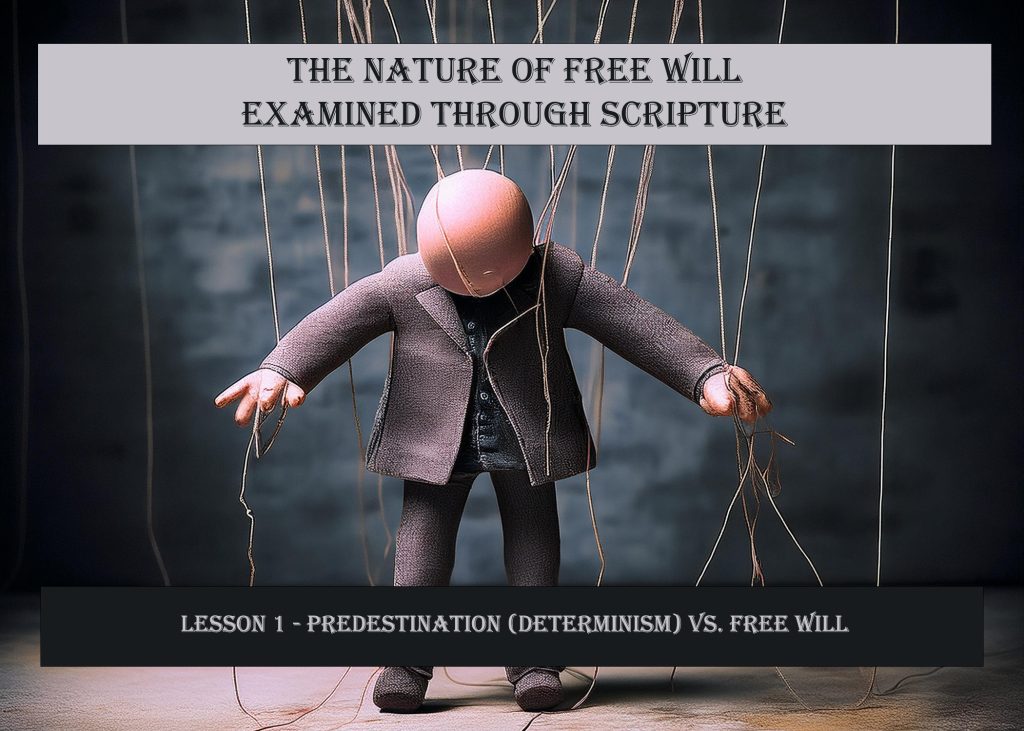
By Kathy L McFarland
9/15/2024
First, a Warning against Casual Refutation of Church Doctrine
The movement and timing of God in teaching mankind the things He wills them to know cannot be forgotten when a study of doctrine is initiated. There is often a sharp change in direction of belief when God moves men to embrace a deeper thought concerning His Word and developing that thought into rules and foundations of belief, especially in the times of the Early Church. However, it cannot be overstated how pleasing it is to the enemy of God to introduce error into the interpretation of Scripture that forms doctrines contrary to God’s truth.
When mature Christians begin unraveling the doctrines within the practice and expression of religion from the Truth of Scripture, a line must be established. At some point, every doctrine that has survived debate, that has been defended to the death by convicted adherents, that has become the basis for the establishment of order and belief of other important ideas of Christian faith, must be considered very carefully if disagreement with Scriptural conformity is addressed.
A lackadaisical casualness or unwarranted critical attitude of addressing the development of the doctrine could possibly prevent the acknowledgement of the movement of God in very difficult times in the development of Christian faith. On the other hand, failure to demand that belief corresponds to God’s Truth as revealed in Scripture allows doctrinal error to creep into faith, building a wall of false teaching that will topple like a line of dominoes when those errors are brought to light. This can most surely shake the faith of many. Great care must be taken always when established doctrines are examined; however, Scriptural support with the Truth of God must always be foremost in a mature Christian’s mind when a study is undertaken concerning doctrinal things.
However, a mature Christian can only believe seemingly apparent truth to be God’s Truth when it is verified through Scripture and the moving of the Holy Spirit. It should never be declared Truth absolutely because Church authority has deemed it so, especially if God has led you to this place of study.
We have already determined that the Pelagius and Augustine debate between free will and original sin is not so much the issue in the drama that unfolded with the establishment of Church doctrine. Rather, it is the attempt of the Church to maintain authority and relationship between those of deep faith against those of deep affiliation with the Church with the presence of growing mistrust of teachings that seemingly reject the Truth of God. Whether our present study moves us in one direction or the other concerning this issue, we cannot neglect a study on how original sin doctrine was formed and how free will to not sin was refuted; only then can we search Scripture and God’s will in this divisive matter and learn His Truth.
A More Detailed Look at the Council of Diospolis (Synod of Palestine, Eastern Christianity)
It is through the writings of Augustine to Bishop Aurelius of Carthage, “A Work on the Proceedings of Pelagius” that we know the defense of Pelagius against the charges of heresy in front of the Council of Diospolis.[1] His letter to Bishop Aurelius of Carthage stirs Western Christianity to uphold the authority of the Church by forming a Council of Carthage to prosecute Pelagius for heresy, in spite against the Eastern Orthodox verdict that upholds the teachings of Pelagius. The examination of this report will allow us to determine both Pelagius’ real belief, assuming that Augustine represents the things spoken at the Council of Diospolis truthfully, and the crux of the discussion concerning free will and original sin by the participants. We will cover charges 1-6 in this report, and 7-12 in the next lesson.
Some Specific Questions and Answers at the Council of Diospolis (Synod of Palestine)
First accusation concerning knowledge of the law and sin[2]
Synod Charge: Reported that Pelagius wrote “No man can be without sin unless he has acquired a knowledge of the law,”[3] the Council asked “Did you, Pelagius, express yourself thus?”[4]
Pelagius Response (partial): “I certainly used the words, but not in the sense in which they understand them. I did not say that a man is unable to sin who has acquired a knowledge of the law; but that he is by the knowledge of the law assisted towards not sinning, even as it is written, ‘He hath given them a law for help.’”[5]
Synod Decision: The synod declared: “The words which have been spoken by Pelagius are not different from the Church.”[6] Their discussion concerning this matter faults Pelagius for not taking sufficient care with the succinct expression of his faith concerning the law’s effect upon sin in his writings. They cite the numerous sheep in the Church’s flock who are unable to understand the Latin and Greek rites and services, but yet are an integral part of the Church. They particularly differentiate between Pelagius’ statement to them that “a man is by the knowledge of the law assisted towards not sinning,”[7] from the assertion in his book that “a man cannot be without sin unless he has acquired a knowledge of the law;”[8] while they acknowledge both statements can be God’s Truth, one is vastly different than the other if literal understanding is attempted. Thus, they demand that his book be revised and amended with specific words that reflect the actual association with sin and God’s law as they admonish him with Scripture “There is that slippeth in his speech, but not in his heart (Ecclesiasticus [Sirach] 19:16).”[9]
Second accusation examines Pelagius’ free will ideas that might dispute the grace of God[10]
Synod Charge: Pelagius writes in the same book concerning his position that “all men are ruled by their own will and everyone is submitted to his own desire.”[11] The Synod charges Pelagius with disputing the grace of God by taking this position.
Pelagius Response (partial): “This is stated in the interest of free will. God is its helper whenever it chooses good; man, however, when sinning is himself in fault, as under the direction of a free will.”[12]
Synod Decision: First, they note that after this statement, Pelagius adds that no man ought to trust himself in the direction he chooses: “For all men have one entrance into life, and the like going out therefrom: wherefore I prayed and understanding was given to me; I called, and the Spirit of Wisdom came unto me.”[13] That Pelagius’ prays for direction confirms his heart to them over the literal interpretation of his words concerning personal free choice in the direction of travel in the journey of life.
Pelagius’ Response comforts the pious judges of the Synod. They do not continue examination on this point, conceding Pelagius’ point that God helps man choose good, but when man sins, it is only himself to blame. Therefore, they concur that the direction a man travels is dependent upon God’s leading and refusal to be led results in sinful free choices to be implemented.
Third charge addresses the possibility of a faithful Christian being cast into Hell[14]
Synod Charge: The Synod then addresses Pelagius’ words “In the day of judgment no forbearance will be shown to the ungodly and the sinners, but they will be consumed in eternal fires.”[15] This distresses the brethren because it leaves open the possibility that sinful Christians are not protected and saved from eternal damnation through faith.
Pelagius’ Response: Pelagius quotes Matthew 25:46 concerning sinners: “These shall go away to eternal punishment, but the righteous into life eternal.”[16] Then he adds another probative point: “Who believes differently is an Origenist.”[17] This wise assertion places the Synod squarely in support of Pelagius.
Synod Decision: Since the Church thinks Origen abominable to assert that everlasting punishment will one day cease, and the devil and angels and sinners that have suffered in eternal fires will one day be purged and released of their penalties to assume a place with the saints and God with His blessings, they have no choice but to agree with Pelagius. That Pelagius did not say that all sinners without exception receive eternal punishment by everlasting fire allows the Synod to support his ideas in the general sense with the already established doctrines and dogmas.[18]
Fourth accusation concerns the purity of the thoughts of Christians[19]
Synod charge: The fourth accusation concerns Pelagius’ statement in his book that “evil does not enter our thoughts.”[20] This seemingly suggests that man is free from thinking evil things if he chose to do so.
Pelagius’ Response: Pelagius denies making that specific statement, at least to its perceived and referenced fuzzy meaning, saying, “We made no such statement. What we did say was that the Christian ought to be careful not to have evil thoughts.”[21]
Synod Decision: This charge is easily dismissed, because to deny that a Christian has the ability to avoid evil thoughts, encourages the thinking about evil which then leads to acts of sin. Righteous and holy men reject thoughts of evil and that stance is supported by Scripture, making the charge against Pelagius spurious and bordering upon the refutation of the Word of God.[22]
Fifth accusation addresses Pelagius assertion about the kingdom of heaven[23]
Synod charge: Pelagius’ asserts that “The kingdom of heaven was promised even in the Old Testament”[24] which seemingly takes away salvation from the New Testament of Christ.
Pelagius’ Response: “This can be proved by Scriptures: but heretics, in order to disparage the Old Testament, deny this. I, however, simply followed the authority of Scriptures when I said this; for in the prophet Daniel it is written: ‘The saints shall receive the kingdom of the Most High.’”[25]
Synod Decision: The synod determines that this position is not opposed to the Church’s faith.
Sixth charges Pelagius’ view that a man can choose not to sin[26]
Synod charge: Pelagius writes in the questioned book “A man is able, if he likes, to be without sin.”[27] He also allegedly writes a widow with flattering words, “In thee piety may find a dwelling-place, such as she finds nowhere else; in thee righteousness, though a stranger, can find a home; truth, which no one any longer recognizes, can discover an abode and a friend in thee; and the law of God, which almost everybody despises may be honored by thee alone.”[28] In fact, many statements written to this specific widow are included in this part of questioning, and support the accusation that Pelagius believes sin to be choice rather than condition.
Pelagius’ Response: “We asserted that a man could be without sin and could keep God’s commandments if he wished; for this capacity has been given to him by God. But we never saith that any man could be found who at no time whatever, from infancy to old age, had committed sin: but that if any person were converted from his sins, he could by his own labour and God’s grace be without sin; and yet not even thus would he be incapable of change ever afterwards. As for the other statements which have made against us, they are not to be found in our books, nor have we at any time said such things”[29] Pelagius goes on to call them fools and heretics to believe such as he is accused, because it is without dogma.
Synod Decision: “Since now Pelagius has with his own mouth anathematized this vague statement as foolish verbiage, justly declaring in his reply, ‘That a man is able with God’s assistance and grace to be without sin,’ let him now proceed to answer the other heads of accusation against him.”[30] They declare the grace that Pelagius expresses as the same that is most completely known in the catholic Church, that “a man, when converted from his sins, is able by his own exertion and the grace of God to be without sin.”
Conclusion of Lesson 3
There are a total of 12 charges brought against Pelagius which are considered by the Palestine Synod. The first six have been covered in this Lesson 3, and the next six will be part of Lesson 4. Pelagius’ beliefs as he defends them in the first six charges are:
Recap of 1-6 of 12 Pelagius Defenses in front of the Palestine Synod Council
1. There are no human beings capable of being free of sin unless they know the Law of God. It is through the knowledge of the law that humans are assisted towards not sinning.
2. All human beings are able to rule their free will and submit to their own desires; but God is their helper only whenever a choice for good is made. Those committing sin are under the direction of free will alone, and not under the direction of God.
3. Sinning human beings will be sentenced to hell on the Day of Judgment as a result of the eternal, everlasting, punishment by God. Righteous human beings will receive eternal reward in heaven by God. Rather than define the Day of Judgment defendants as Christians or seculars, Pelagius argues for the literal representation of human being actions as either directed by God to righteousness, or directed by their own free wills to sin, to predict their eternal destinations of punishments or rewards adjudicated by the Lord.
4. Christians must be careful not to have evil thoughts to maintain their righteousness and holiness that is directed by God.
5. The fact that righteous saints will receive the Kingdom of God is clearly stated by both the Old Testament Prophets and the New Testament Gospels.
6. Human beings can be without sin with God’s grace and help directing them. When human beings are converted to righteousness through their faithful walk with Christ, they can also go without sin by their own free will exertion as their life journey is directed by God.
Join us in Lesson 4 to conclude the testimony of Pelagius and the findings of the Palestine Synod as we examine the last six charges. An examination of the Palestine Synod allows us to complete the first part of our journey to find the historical, theological path that the issue of free will vs. original sin, Pelagius vs. Augustine, the Eastern Church vs. the Western Church has taken to resolve these issues. It is only after the established doctrine and the journey taken to develop it are understood that a deeper effort to understand the Word and Will of God can be explored.
Bibliography
Augustine, Saint, Bishop of Hippo. “A Work on the Proceedings of Pelagius”. Translated by Peter Holmes. Vol. V: Saint Augustine: Anti-Pelagian Writings A Select Library of the Nicene and Post-Nicene Fathers of the Christian Church, Edited by Philip Schaff. New York: Christian Literature Company, 1887.
[1] Saint Augustine, Bishop of Hippo, “A Work on the Proceedings of Pelagius”, ed. Philip Schaff, trans., Peter Holmes, A Select Library of the Nicene and Post-Nicene Fathers of the Christian Church, vol. V: Saint Augustine: Anti-Pelagian Writings (New York: Christian Literature Company, 1887).
[2] Ibid., 183-185.
[3] Ibid., 184.
[4] Ibid.
[5] Ibid.
[6] Ibid.
[7] Ibid.
[8] Ibid.
[9] Ibid., 185.
[10] Ibid., 185-186.
[11] Ibid., 185.
[12] Ibid.
[13] Ibid.
[14] Ibid., 186-188.
[15] Ibid., 186.
[16] Ibid., 187.
[17] Ibid.
[18] Ibid., 188.
[19] Ibid.
[20] Ibid.
[21] Ibid.
[22] Ibid.
[23] Ibid., 188-190.
[24] Ibid., 188.
[25] Ibid.
[26] Ibid., 190-193.
[27] Ibid., 190.
[28] It is significant that the Synod addresses both his writings in the book under investigation, as well as a personal letter that is allegedly written to this certain widow and is indicative of the gathering of all available evidence to determine his guilt. However, it should be noted that there is no evidence that this certain widow testified in front of the Council or that the actual letter was examined during the trial.
[29] Augustine, 190.
[30] Ibid.



